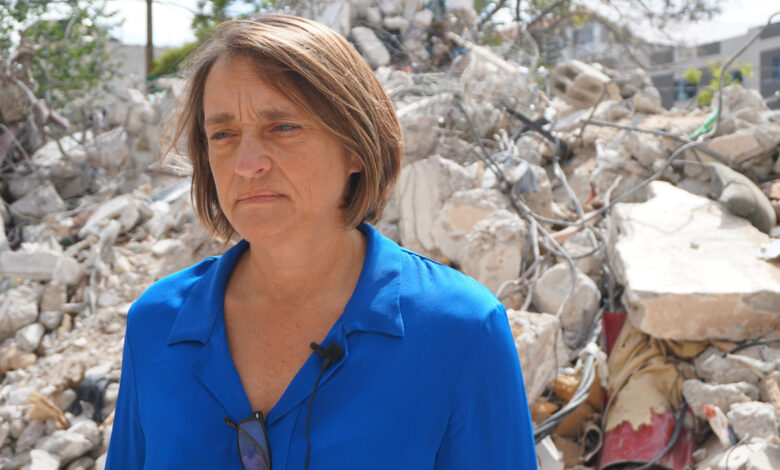
On World Humanitarian Day, UN official pays tribute to humanitarian workers in the occupied territories
As the United Nations marks today World Humanitarian Day, Lynn Hastings, the Humanitarian Coordinator for the Occupied Palestinian Territory (OPT), paid tribute to humanitarian workers in the OPT who deliver assistance in times of conflict or natural disasters.
“About 2.1 million people across the OPT need humanitarian assistance, the same number as last year but with unprecedented and growing vulnerabilities in the West Bank. Thousands are involved in the effort to try and help them; NGOs might be the most obvious, but they work in partnership with volunteers, municipal workers who repair pipelines in the middle of floods or conflict, doctors, and nurses – to name only a few who act as ‘first responders’,” said Hastings in a statement.
“In the OPT, #NoMatterWhat means that amid Israel’s occupation, movement restrictions, political divisions, recurrent conflict, and even efforts to denigrate their work, humanitarians are working to assist 1.6 million of the most vulnerable Palestinians. Their commitment to helping others in times of crisis is unwavering. As they provide trauma care, deliver food, ensure access to clean water, shelter, education, health, nutrition, and protection, they often put their own lives at risk.
“During operations and escalations, colleagues work to ensure consistent provision of safe drinking water, while others extinguish fires or clear debris, paving the way for rescue units to enter buildings on the verge of collapse. Medical teams venture into dangerous areas amid gunfire and bombing to treat the injured; in the first seven months of 2023, 77 healthcare workers were injured, and 30 ambulances damaged.
“Experts diligently remove unexploded ordinance to avoid further loss of life,” said the UN Humanitarian Coordinator.
“In high-risk areas of the West Bank, partners accompany farmers and herders, providing safety, thereby allowing them to sustain their livelihoods and food security.
“In inclement weather, especially during heavy rains, dedicated teams maintain drainage and electricity systems while most people seek shelter indoors,” she said, adding, “Despite these obstacles, they and we are committed, no matter what, to helping people in need.”





